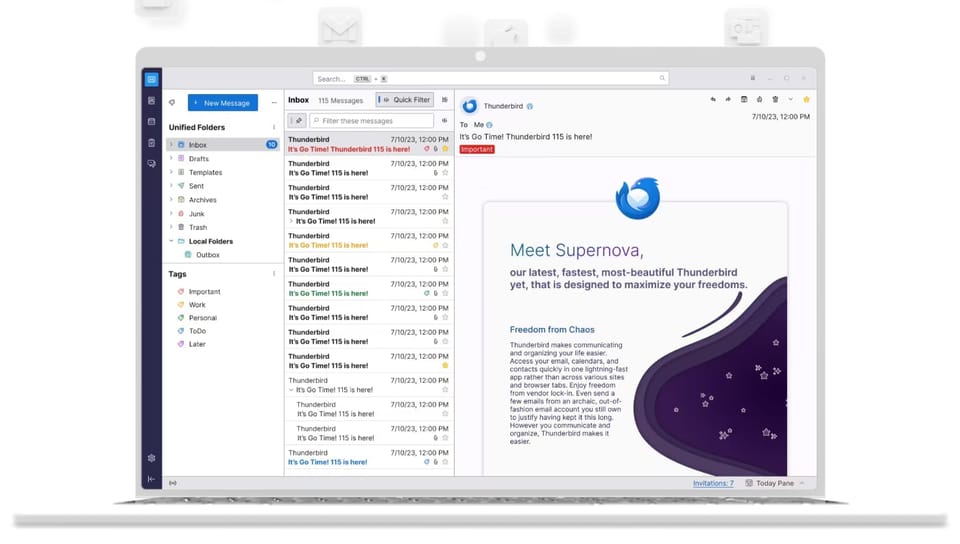Thunderbird Email Client Gets a Fresh Design and Updated Foundation

Thunderbird developers have recently released Thunderbird 128, an Extended Support Release (ESR) version. They claim to have integrated significant improvements to the code, stability, and overall user experience, enabling faster delivery of new features in the future.
The development work was lengthy but necessary to leverage Rust, Mozilla's open-source programming language that allows for efficient and secure applications. Rust is presented as an invisible change that improves code quality and performance, enabling feature sharing between desktop and future mobile versions of Thunderbird and accelerating the development process.
While the most important changes are under the hood, there are visible improvements, such as an enhanced tab view. The new layout is more appealing, facilitating email scanning and quick information gathering. Email tab height automatically adjusts based on desired settings.
The folder pane has also been improved, boasting faster rendering and searching of unified folders, better recall of message thread states, and multi-folder selection.
Accent colors simplify the ability to set key colors for certain elements, now customizable and matchable to operating system color schemes that support this option.
Another small graphical update is the ability to customize account icon colors, which also appear in the "From" selection when composing emails.
The context menu has been reorganized for a smoother experience, with main actions now displayed as icons for quick access.
Developers report that integrated support for Exchange and Mozilla Sync is planned for a future point release of Nebula (e.g., Thunderbird 128.X). These features are described as "very close to completion" but technical obstacles have prevented them from being ready so far.
Thunderbird 128 is available for Windows, Linux, and macOS. Currently, version 128 is only available as a direct download from thunderbird.net and not as an update from version 115 or earlier. A future version will provide updates for previous versions.
In May this year, Mozilla confirmed they are working on an iOS version.
